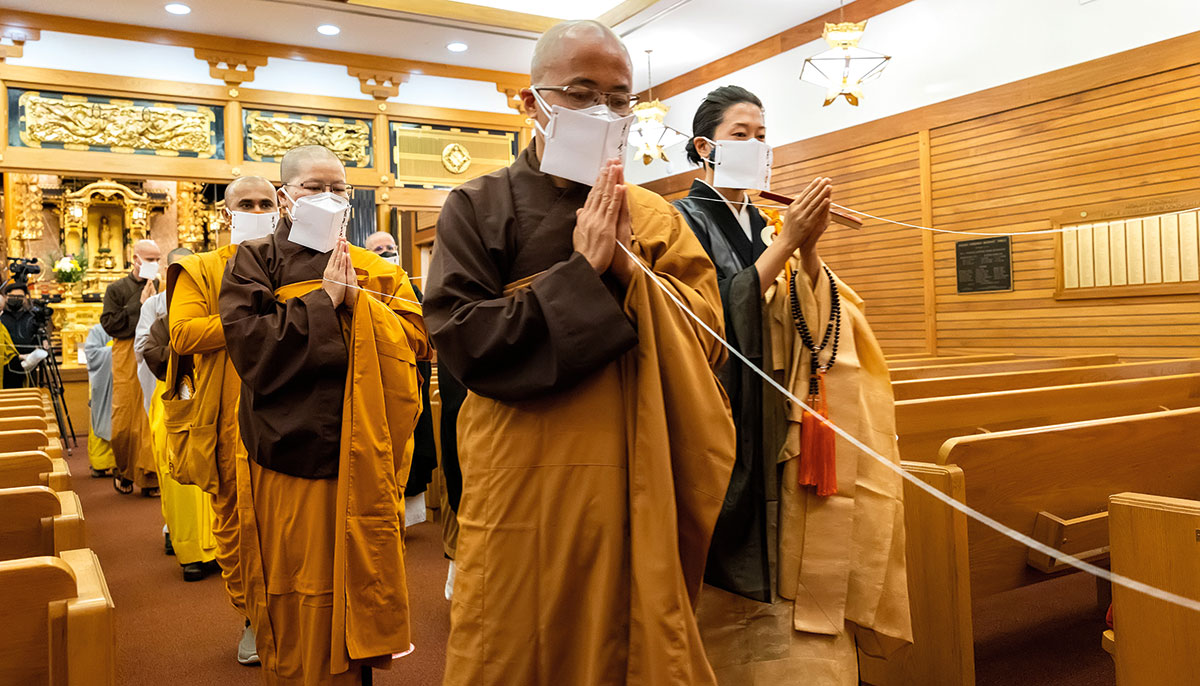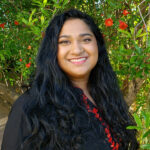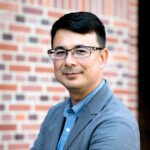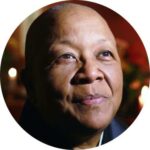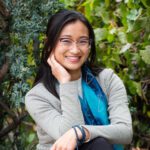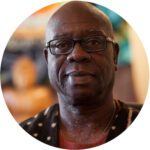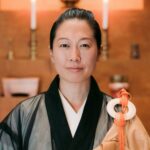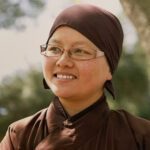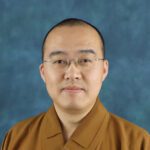On May 4, Higashi Honganji Buddhist Temple in Los Angeles’s Little Tokyo hosted May We Gather: A National Buddhist Memorial Ceremony for Asian American Ancestors.
The event, livestreamed to an audience of tens of thousands, marked the forty-ninth day after the shootings in Atlanta in which six Asian American women were murdered: Tan Xiaojie, Feng Daoyeu, Hyun Jung Grant, Soon Chung Park, Kim Suncha, and Yong Ae Yue.
Clergy representing the Fo Guang Shan, Jodo Shinshu, Nichiren, Zen, Theravada, Thien, Tibetan, and other Buddhist traditions chanted sacred texts, offered dharma teachings, and reflected on the long history—and terrible present—of racialized violence suffered by Asian Americans.
An event to remember and bear witness, May We Gather was a fierce declaration, a proclamation of Buddhist unity, and a powerful act of defiance and healing.
—Mihiri Tillakaratne, Associate Editor, Lion’s Roar
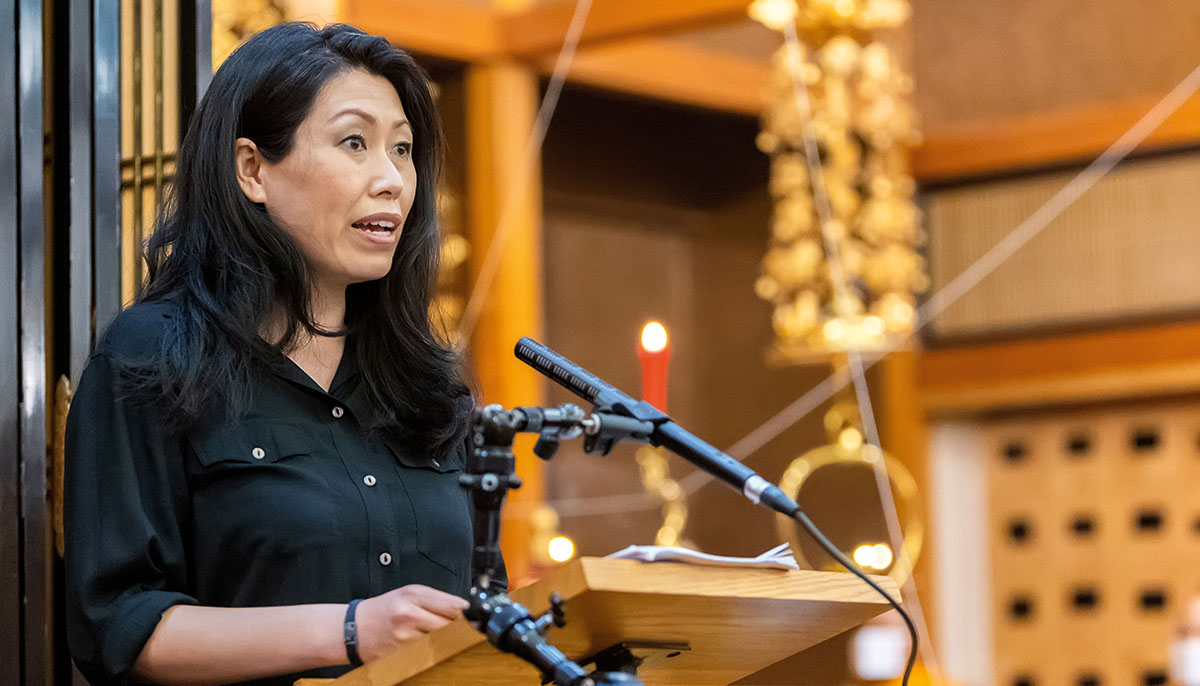
Funie Hsu, Event Co-organizer, Interdisciplinary Scholar
We gather as Asian American Buddhists and allies in an expression of our fundamental interconnectedness. We do not suffer alone, nor do we heal alone. Only when we join together as a sangha can we truly support each other’s freedom.
When our Chinese immigrant ancestors came to these shores in the 1850s, we faced exclusion and violence, our Buddhist and Daoist temples desecrated and set ablaze. When our Japanese American forebears were herded into U.S. concentration camps in the 1940s, our priests were classified as a threat to national security, our Buddhist faith deemed un-American. When our South and Southeast Asian parents and grandparents arrived in this country in the 1970s, many fleeing wars inflamed by the American military, we were told our cultures and Buddhist traditions didn’t belong.
Piece by broken piece, we sutured the jagged edges of altars, statues, incense burners, and our very bodies and minds back together.
In the face of nearly two centuries of xenophobia and systemic violence, Asian American Buddhists have long joined together to rebuild our communities. Piece by broken piece, we sutured the jagged edges of altars, statues, incense burners, and our very bodies and minds back together. This mending is part of our Buddhist practice in America. Each act of rejoining reveals how compassion can arise out of racial suffering, how fragments are inseparable from wholeness. We mend them as a declaration of our interconnectedness, as an expression of gratitude to our ancestors, and as a way to cultivate the karmic conditions for American Buddhism’s continued flourishing.
As we confront yet another wave of violence, vandalism, and exclusion targeting Asian Americans and Asian American Buddhists, let us honor our ancestors by continuing their legacy of gathering and mending.
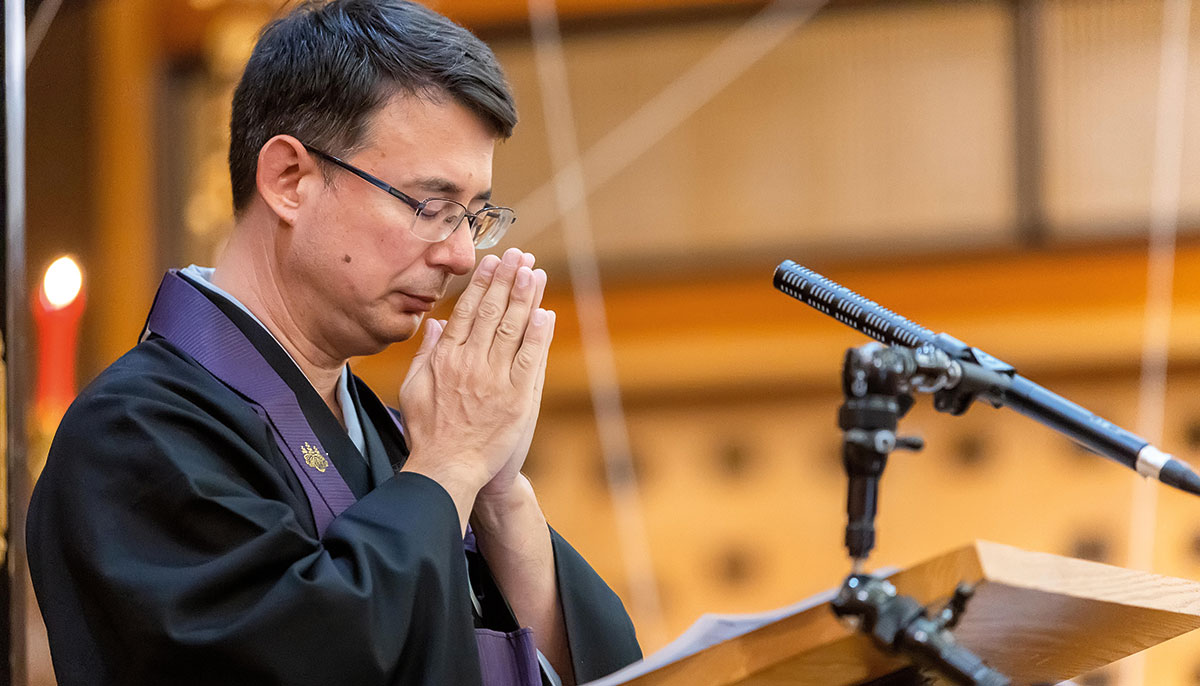
Rev. Duncan Ryuken Williams, Event co-organizer, author of American Sutra
The Buddha taught that even if you scour the world, there’s not a single person who has not experienced loss from the death of someone they love. This sense of loss is only compounded when a loved one passes away suddenly or violently. Forty-nine days ago, eight families experienced this aggravated sense of grieving when eight people, six of them Asian women, were shot and killed in the Atlanta area.
We gather today because only through joining together do we know that we are not alone. In ceremony, loss can be transformed into connection, including connection with those we believe are absent. The Buddha himself told his community just before he died that while he would no longer be physically present, he would still be with them through his teachings and his example. Indeed, the Buddha is with us in this present moment. He is here through his teachings, which links the past to the present and each of us to one another.
Death may be thought of as a loss, but in the customary forty-nine days of mourning after a person’s passing, we come to learn from the deceased just how present they are in our hearts and minds, our bones and marrow. Like the Buddha, they teach us that our lives are inexorably interlinked.
This gathering was prompted by the life and death of Yong Ae Yue, a devout Korean American Buddhist, whose life was cut short at the Aromatherapy Spa in Atlanta. Her two sons remember her as a selfless person who stood up against discrimination, and always advocated for treating people right. She reminds us that the antidote to a gunman’s confused and deluded mind is the wisdom to see things clearly. Her offering to the nation includes this very gathering, which brings together an American sangha from many lineages and many regions of our country. As with the life, death, and memory of George Floyd, we learn that the power of one life can touch the hearts of so many.…
The poisons of ignorance, greed, and hatred have precipitously ended the lives of so many. We gather together to provide an antidote: wisdom to heal ignorance, loving-kindness to heal hatred, and generosity to heal greed. This powerful medicine is available to us whenever the need arises.
Our destinies and freedoms are intertwined.
The Black abolitionist Frederick Douglass provided a powerful diagnosis and healing when he insisted in a speech that America is “a composite nation.” The America he envisioned was one that welcomed the Chinese and immigrants of a multitude of races and faiths to the “duties of citizenship”—a vision of America that values multiplicity over singularity, hybridity over purity, and inclusivity over exclusivity.
As we see ourselves in others and others see us in them, we learn the lessons of those for whom we perform this ceremony. Today we join together to repair the racial karma of this nation, because our destinies and freedoms are intertwined. Though the mountain of suffering is high and the tears of pain fill the deepest oceans, our path compels us to rise up like a lotus flower above muddy waters.
Reparative medicine also comes from a saying attributed to Bodhidharma: Nana korobi ya oki. “Fall down seven times, get up eight.” At times, this means we come back to our breath when our mind wanders or sit up straight when we slump off the meditation cushion. Other times, we return to our precepts and vows when we fall off the noble path. But sometimes, it requires us to gather. And today, We the Sangha of the United States of America have gathered to recall our interconnectedness, feel the presence of those who have gone before, and to get back up. Though we may fall down a million times, we rise again a million and one times in honor of our ancestors and our loved ones who have passed.
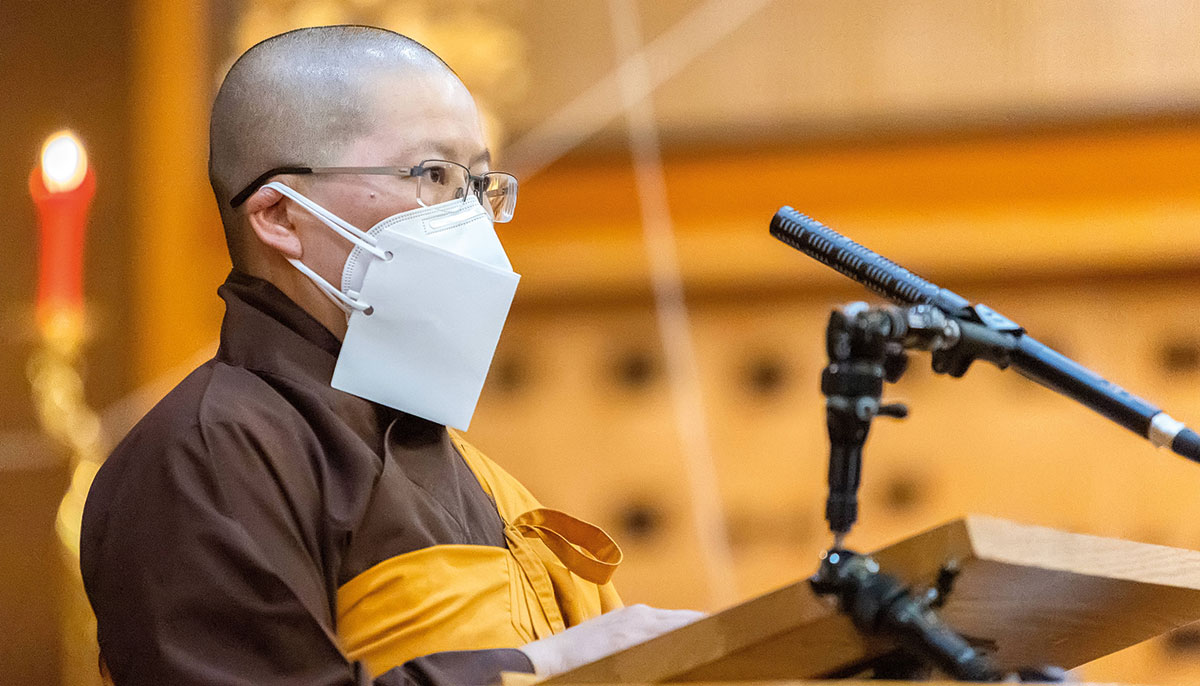
Sister Kinh Nghiem, Deer Park Monastery
It is imperative that we gather as a spiritual community to generate compassion and support for one another as we travel on this path of freedom and responsibility.
As we care for our suffering and face the challenges confronting us, we remind ourselves that the way of understanding and compassion is the antidote to the fear, violence, and discrimination in this moment that we all have experienced personally, as a community, and as a nation. How can we cultivate understanding and compassion? One way is through the Buddhist practice of sila, or the ethical path of responsibility and accountability.
My teacher, Thich Nhat Hanh, has reframed sila as mindfulness training, or, put another way, as love in action. We train to love ourselves and love others by being mindful of our actions. We train to generate the energy of mindfulness that helps us be careful of our three karmic actions of body, speech, and mind in our daily life. When we are mindful of what is going on in our bodies, our feelings, our minds, and in the world, we can better avoid doing harm to ourselves and others.…
As our world becomes more globalized and undeniably more interwoven, we must continue to gather together to discuss and find a global ethic that can help guide society and promote mutual understanding and respect of one another despite our differences in views, beliefs, and way of living. We are gathered today because we know that the way forward is not to retreat to our own safety and comforts and ignore what is happening to our communities, to others, and to our fellow earth citizens, but rather because we are convinced that the path of understanding and compassion is the way forward—not just for humankind but for all species on this precious planet.
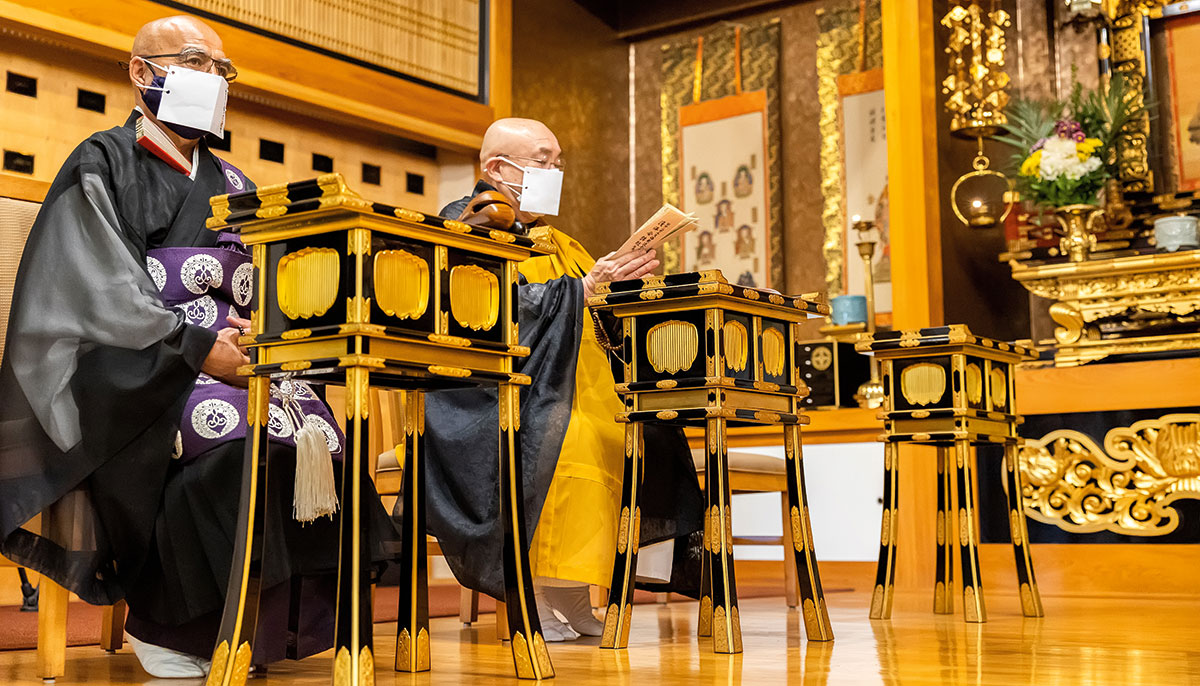
Myokei Caine-Barrett, Shonin, Nichiren Shu Order of North America
We are experiencing great uncertainty and perhaps great anxiety as our community continues to be confronted by the three poisons of greed, anger, and ignorance. As dharma practitioners, we can only turn to our various ways of practice to be able to walk the path of dharma with confidence, calmness, and poise.
The paramita [transcendent perfection] of meditation is the foundation of wisdom and the way to cut through the illusion of ego and thinking of ourselves as separate from other beings. Meditation allows us to focus and master our minds, rather than have our minds be our master. In the practice of contemplation, the gift of meditation is the ability to focus the mind on a single point of concentration in order to become free from distraction. Through calming the activity of the mind in meditation, we can establish the ground for realizing insight and wisdom. Over time, we come to embody the very qualities that the Buddha has: great compassion, gentleness and patience, and the ability to see the voidness of all things.
I unite with you today as an Asian American who is also of African American descent. I invoke all our ancestors who have worked together and given so much so that today we can stand together in solidarity as one human family. We are learning each other’s stories and trials; we know each other’s victories and losses.
We should never forget we are all the Buddha’s children, embraced by his great love and wisdom, which allow us to follow the path of compassion and mercy. The Buddha said, “I am always thinking, ‘How shall I cause all living beings / To enter into the unsurpassed Way / And quickly become Buddhas?’” Let that be our guiding principle as we walk together and purify the Buddha’s land. Namu Myoho Renge Kyo, Namu Myoho Renge Kyo, Namu Myoho Renge Kyo.
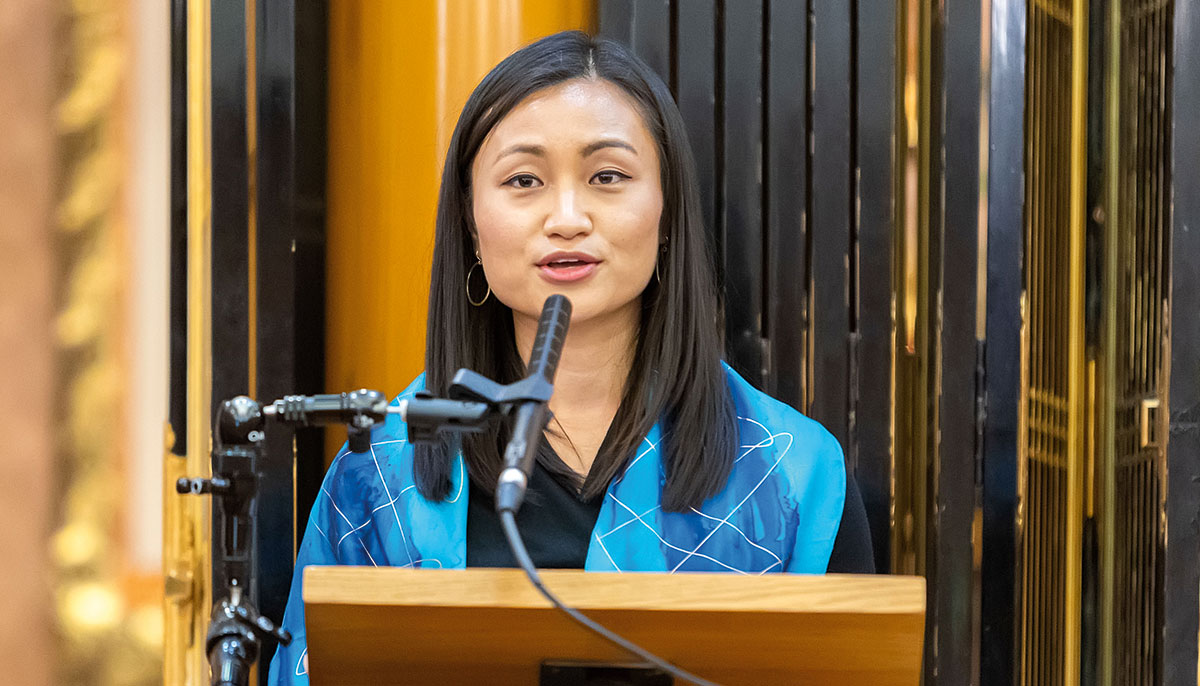
Chenxing Han, event co-organizer, author of Be the Refuge
On the altar before us are six memorial tablets bearing the names of Yong Ae Yue, Vicha Ratanapakdee, Tommy Le, Thien Minh Ly, Kanesaburo Oshima, and Sia Bun Ning.
These six individuals are just some of the many Asian American Buddhists killed in acts of violence from the nineteenth century to the present. Because the history of systemic anti-Asian violence in the U.S. includes erasure, many of the names of those killed have not been documented. We say the names of these six individuals while acknowledging and honoring the many other names not on the altar today. Grief and loss connect us across different ethnic and spiritual communities. The seventh, central tablet commemorates all people who have lost their lives due to racial and religious animus. We will now be making offerings of light and incense in front of these memorial tablets.
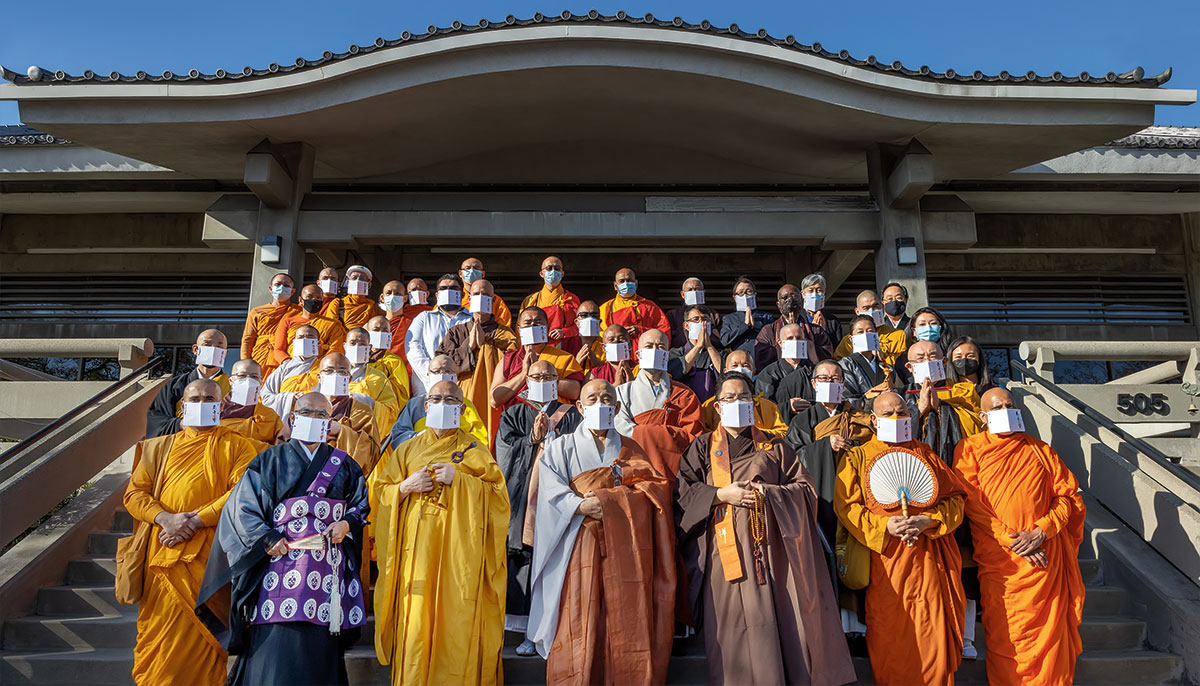
Prayer by Ven. Hui Dong, Fo Guang Shan Hsi Lai Temple
Oh great, compassionate Buddha! Please listen to the serious thoughts of your disciples: Bloody and violent incidents have continuously occurred in the country. Brutal and senseless actions have spread into people’s lives. Many Asians and Asian Americans have been attacked or even lost their lives. People from all races and ethnicities now live in fear and worry.
Today, we gather before you to pray for all victims of hate crimes who have senselessly lost their lives. Oh great, compassionate Buddha! May you shine your pure radiance upon them and accept them through your compassionate vows. May the sacred assembly receive them upon a golden dais and instantly guide them to the Pure Land. May they soon see the Buddha, hear the Dharma, and realize their Buddhanature.
We pray to you, Buddha and the sacred assembly, please also bless the survivors to live in peace, without fear and resentment. To live in abundance, without worry and regret. To live in happiness and receive protection of the sacred ones.
Oh great, compassionate Buddha! We also pray for those who committed the crimes. They are also victims of their own heinous deeds, for hatred has clouded their thoughts. Resentment has blinded their eyes, anger has controlled their behaviors, greed has filled their minds. Oh, Buddha! Please let compassion calm their thoughts. Please let wisdom open their eyes. Please let gratitude reform their behaviors. Please let joy free their hateful minds.…
May we all live in peace with compassionate hearts. May the world be replete with kindness, compassion, joy, and equanimity. May the world be filled with grace, respect, courage, and wisdom. Oh great, compassionate Buddha! Please accept our sincerest prayer!
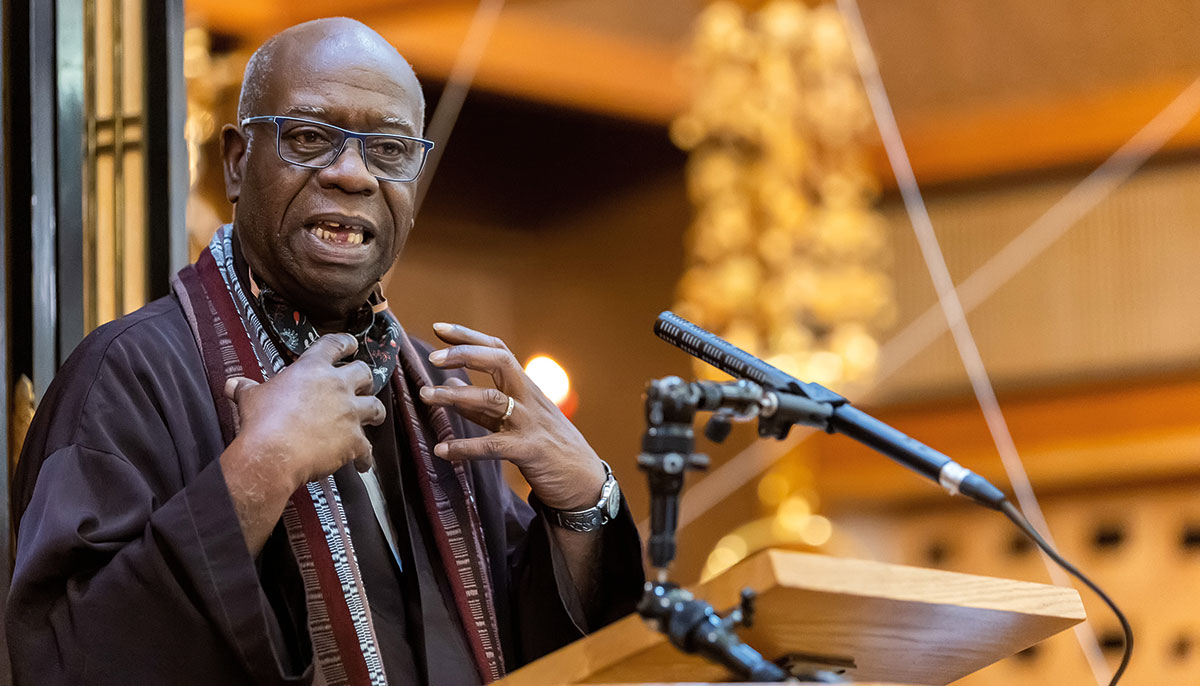
Larry Ward, The Lotus Institute
Now, in this nation as it has been in centuries before, these despicable attacks of physical and cultural habits of toxic brutality, disrespect, and emotional injury create a trauma field for continued suffering. The abuse hurled upon you and upon me is the tragic product of colonialized white race consciousness. All the pain and resistance we have had and continue to experience as non-white bodied humans present in this land called America is a witness to this deep illness. The Buddhadharma invites and encourages all of us to embody stillness while in compassionate wise action of giving. Yes, legal actions are important. But looking deeper, one can see their tragic insufficiency. We are invited to gain insight by looking deeply within ourselves and among ourselves to discover our unrealized kinship. We are invited to learn how to water seeds of safety and welcome for one another and among one another. If enough of us recover our kinship beyond time and space, we may realize a breakthrough: a new understanding of human wellness, justice, and harmony. I trust this breakthrough lies within the buddhadharma deeply understood and applied.
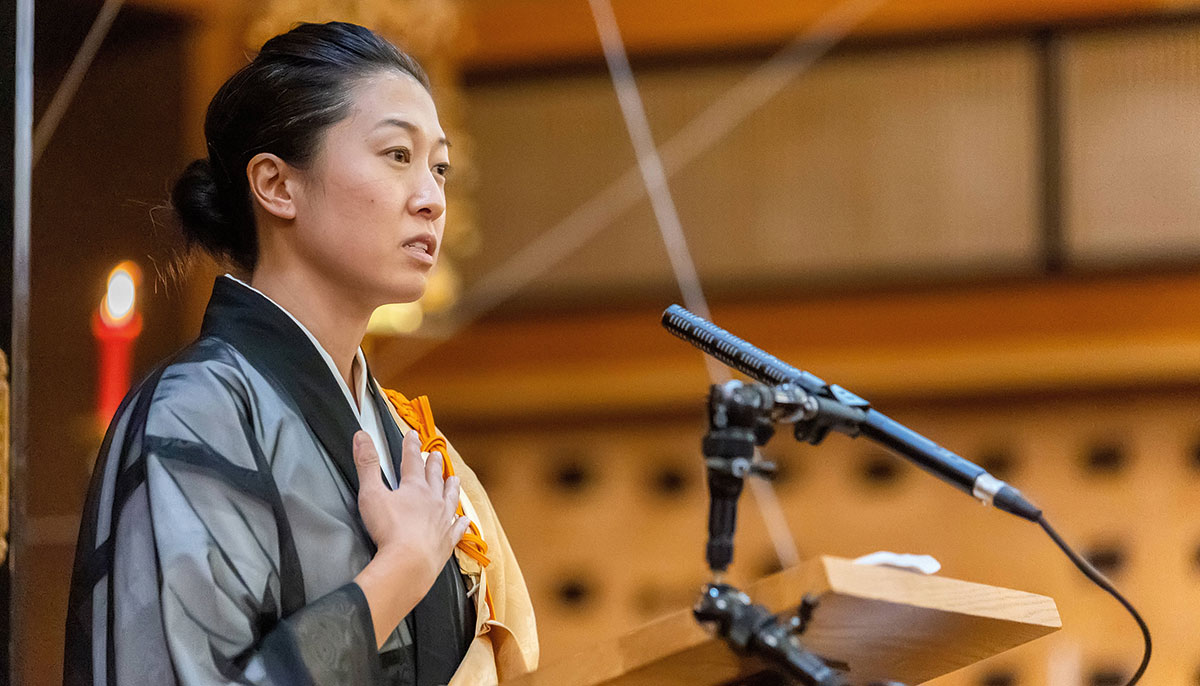
Rev. Cristina Moon, Daihonzan Chozen-ji International Zen Dojo
In the original Sanskrit, the paramita of virya means vigor, effort, and diligence. For today’s purposes, let’s think of it as spiritual strength.…
We clearly need strength, in moments like these, to help us forge a path ahead through racism, patriarchy, and other oppressions and inequities. But we also need it to meet the suffering caused by injustice or just the vicissitudes of life with compassion. Nobody would dispute that what the world needs today is more compassion. But consider what compassion really means. The Latin roots of the word compassion are com and passion. Com means with. Passion—as in the Passion of the Christ—means to suffer. So, com-passion means to suffer with. To suffer with others, perhaps even in the hardest moments of their lives, requires tremendous spiritual strength.
After an exhausting year, many are probably wondering, where can we find such spiritual strength?… We need only look around, finding examples of spiritual strength in our families and ancestors who risked everything to build a brighter future. Examples like Tan Xiaojie, Feng Daoyou, Hyun Jung Grant, Park Soon Chung, Kim Suncha, and Yue Yong Ae. The strength they had to make America their home, working multiple jobs and navigating a new world for the sake of their families, was tremendous. Let us commit to matching their spiritual strength, their virya, today and every day to come as we remember and honor them.
